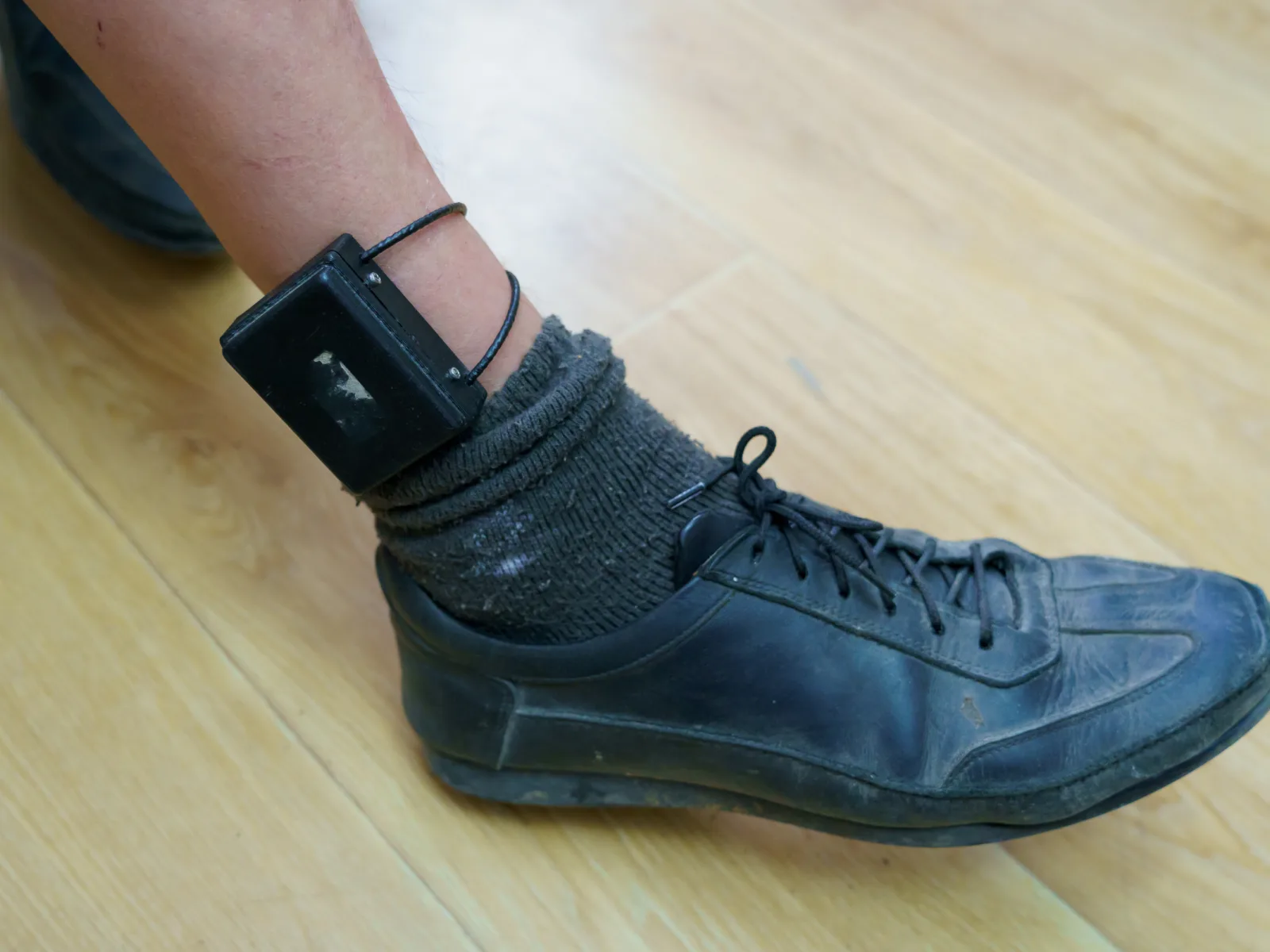Even in the face of a pandemic, a crippling economic slowdown, and a national reckoning on racial injustice, organizations supported by Arnold Ventures stayed true to their commitment to maximize opportunity and minimize injustice, paving the way in 2020 for evidence-based policy reforms and legislative changes aimed at creating a more fair and equitable society for all.
Criminal Justice
Pursued Reforms In Response To COVID-19

The pandemic put the criminal justice system through an unprecedented stress test, exposing longtime challenges of overcrowded and unsafe jails and prisons, overly burdensome community supervision programs, and policing policies that unnecessarily rely on custodial arrests. Arnold Ventures and our partners successfully advocated for policy changes that keep justice-involved people safe from COVID-19 in the short term, and work in the long run to build a smaller and more equitable system. Organizations like the Council on Criminal Justice created quick-response publications to promote best practices. Not every state or jurisdiction moved robustly enough, but in critical areas we saw reforms implemented in a matter of weeks that otherwise would have taken years. States like New Jersey released thousands of people from prison. Dozens of pretrial service agencies implemented reforms in response to the pandemic. Law enforcement agencies expanded the use of cite-and-release and other alternatives to arrest. The challenge for next year will be expanding on these wins and preventing any rollbacks.
Wins at the Ballot Box

Criminal justice reform was on the ballot in the 2020 election. Despite the failure of California’s Prop 25 to end cash bail, reform advocates racked up a series of other wins. California voters rejected Prop 20, which would have authorized unnecessarily harsh punishments for certain misdemeanor crimes, and approved Prop 17, which restores the right of parolees to vote. Los Angeles voters passed Measure J to dedicate funding for alternatives to enforcement. Voters in Arizona, New Jersey, Montana and South Dakota legalized marijuana for adult use. And Oregon residents approved Measures 109 and 110, which legalized medicinal use of psilocybin and decriminalized other drugs, including opioids, and redirected tax revenue from legalized marijuana to fund evidence-based treatment and recovery services for substance use disorder. Many progressive prosecutors also emerged victorious in their elections, including George Gascón in Los Angeles and Jose Garza in Travis County, Texas.
Cut the Community Supervision Tripwire and Cleaned the Slate
Research by Pew and Arnold Ventures has revealed how community supervision practices keeps people entangled in the criminal justice system. This information helped to drive a series of state-level changes to probation and parole. In California, the REFORM Alliance and coalition partners worked to enact legislation that limits adult probation sentences to a maximum of one year for misdemeanor offenses and two years for felony offenses. In Louisiana, REFORM and Right on Crime supported legislation that allows individuals on probation and parole to meet reporting requirements remotely and also grants parole boards discretion to reduce fees and supervision time. And in Washington, the Justice Action Network helped pass a package of community supervision reform bills that included earned time credits and required concurrent supervision terms. Michigan passed the most sweeping clean slate legislation in the country, and Pennsylvania removed outstanding fines and fees as an obstacle to expungement.
Reduced the Burden of Fines and Fees

The unfair financial burden of fines and fines, especially for youth, has become a growing cause for local criminal justice reform groups. Several states passed fines and fees reforms with support from Arnold Ventures and our partners. In California, Berkeley PAC helped pass two historic bills that eliminated nearly two dozen adult fees, including probation fees, forgave an estimated $16 billion in outstanding debt, and applied retroactively a previous repeal of juvenile fees. Arnold Ventures worked closely with Advocates for Children and Youth and the Juvenile Law Center to secure passage of a bill eliminating juvenile fines and fees in Maryland, prospectively and retroactively. And New Jersey eliminated juvenile fines going forward.
AV partners also successfully pushed for an end to drivers’ license suspensions as a punishment for unpaid fines and fees. In Virginia, the Legal Aid Justice Center was key to repealing the state’s court debt license suspension statute. The Fines and Fees Justice Center advised on a bill sponsored by the Maryland attorney general that ended debt-based drivers’ license suspensions for future cases. And in Oregon, the Justice Action Network helped to pass legislation that ended debt-based driver’s license suspensions.
Bruised, but Victorious, in Pretrial Reforms
New York passed a sweeping bail reform package that attracted attention and attacks from the tough-on-crime crowd — and typical headlines from the New York Post. Despite efforts from the Justice Action Network and New Yorkers United for Justice, the state rolled back some of the pretrial reforms. Nevertheless, core components are still in place, and New York successfully cut its jail population in half between July 2019 and July 2020.
Policing Advocacy Received New Importance

The police killings of George Floyd and Breonna Taylor sparked a national movement to reform policing. Arnold Ventures’ longtime work on alternatives to arrest and shrinking the footprint of law enforcement has gained a new sense of relevance and importance amid growing national debates about law enforcement. Our grantees at the NYU Public Safety Lab identified a disturbing pattern of racial disparities in NYPD misconduct complaints. Vera published groundbreaking research that revealed most 911 calls are related to non-criminal issues, underscoring the need to reimagine how police respond to calls for service. And the National Police Foundation established best practices for how local law enforcement could protect democracy during a particularly heated election cycle. Looking forward to 2021, we’re laying the foundation for robust, state-level advocacy around data-driven reforms.
Health Care
Ending Surprise Medical Billing

Research funded by Arnold Ventures helped propel Congressional lawmakers to end the practice of surprise medical billing. A year-end package approved by Congress puts an end to the indefensible and predatory practice. Though this legislation represents important progress, it should be considered a first step toward lowering health care costs for families.
In addition, with technical assistance and policy support from Arnold Ventures grantees, multiple states including Georgia and Virginia passed legislation to protect patients from surprise medical billing, joining a growing movement of states banning the practice.
Keeping the Pressure on Pharma

Grantees supported by Arnold Ventures continued to churn out research and data showing how the pharmaceutical industry has systematically elevated the price of prescription drugs through their use of anticompetitive practices, market distortions, and unjustified high prices. This evidence contributed to policy development that laid groundwork for federal legislation under consideration, as well as a series of House Oversight and Government Reform Committee investigations in the fall that revealed how pharma puts profits over patients. In addition, several states are expanding their efforts to rein in drug prices, including Minnesota, which this year passed the Alec Smith Emergency Insulin Bill, which establishes a program for patients with diabetes to purchase the insulin they need at an affordable price.
Expanding Access to Care

Several organizations, fueled by investments from Arnold Ventures, are working to make the birth control pill available over the counter in an effort to expand contraceptive access to communities that face the greatest barriers, specifically young people and the uninsured. Meanwhile, Oregon became the first state to decriminalize possession of small amounts of drugs while shifting significant resources to expanding treatment and recovery services, thanks to a voter-approved measure backed by Arnold Ventures. In addition, AV grantee Shatterproof launched the ATLAS database, a first-of-its-kind system to help patients and families find a high-quality opioid use disorder treatment founded in evidence based quality treatment programs about the treatment programs.
Higher Education
Protecting Students from Predatory Institutions

Harvard’s Project on Predatory Student Lending — an AV grantee — led a major victory against the U.S. Department of Education, which had used a policy of blanket denial of relief for thousands of defrauded students. The win is significant for those who were defrauded by for-profit colleges and institutions. As a new administration prepares to take office, our grantees are playing a significant role in the federal transition, developing resources and recommendations that will inform initial priorities and better deliver a quality education to students.
Other Programs
Strengthening Our Democracy

In the midst of the turmoil testing American democracy in 2020, Arnold Ventures and its grantees won several consequential electoral reforms in Alaska (Top-Four nonpartisan primaries and ranked-choice voting), Virginia (bipartisan redistricting commission), and Michigan (the U.S. Circuit Court of Appeals for the 6th Circuit upheld the independent redistricting commission passed in 2018). Also, for the first time, five states (Kansas, Alaska, Wyoming, Hawaii, and Nevada) used ranked-choice voting in the presidential primary, and one state — Maine — used it in the November election for all federal offices, including president. In addition, voters in five cities passed ranked-choice voting on the November ballot.
Improving Public Finance
AV grantees Tax Policy Center and the Penn Wharton Budget Model were instrumental in providing information on the cost and anticipated impacts of the stimulus packages to policymakers. Through the use of analysis, they held public officials accountable to unbiased cost estimates of policy proposals during a contentious election season. Despite the financial difficulties for states this year, we saw bright spots in implementation of pension reforms in North Carolina and Pennsylvania, which instituted critical “stress testing” requirements. And finally, Policy Labs in D.C., Texas, Rhode Island, California, and Michigan partnered closely with local governments to provide data, modeling, and expertise to policymakers on COVID-19-related policies.
Helping With COVID Relief

Using a combination of charitable relief donations and loans, Arnold Ventures has contributed, to date, more than $16 million to support COVID-19 relief efforts in Texas, New York, and Washington D.C., as well as in hard-hit and vulnerable communities in Nebraska, Iowa, Puerto Rico, Louisiana, Georgia, Alabama, Mississippi, Missouri, Michigan, and Wisconsin.
Elevating RCTs
Randomized controlled trials are the gold standard to meaningfully evaluate the true impact of social programs — they are critical in the formation of effective, evidence-based policies that address the nation’s most stubborn problems. This year, we made significant progress on building the body of proven-effective social programs. Several RCTs that we funded identified programs that have had meaningful positive effects on individual outcomes, including ASAP in Ohio, a comprehensive community college program for low-income students that was shown to nearly double the likelihood of degree completion within three years; Nevada’s Reemployment Eligibility and Assessment (REA) program, which significantly increased average earnings for unemployment insurance claimants over three years and produced net savings to the government; and English for Advancement, which substantially increased average earnings for adult English language learners.
Saving Lives on the Organ Waiting List

Every day, around 33 Americans die while waiting for an organ transplant. But new reforms finalized by the U.S. Department of Health and Human Services late last month and spearheaded by AV grantee Organize have strengthened oversight of organ procurement organizations, the government contractors that collect and transport organs. Once implemented, the new measure is expected to make more than 7,000 additional organs available each year to patients who desperately need them, while saving $1 billion annually for taxpayers through reduced health care costs.















